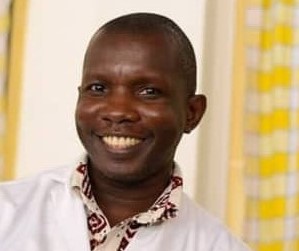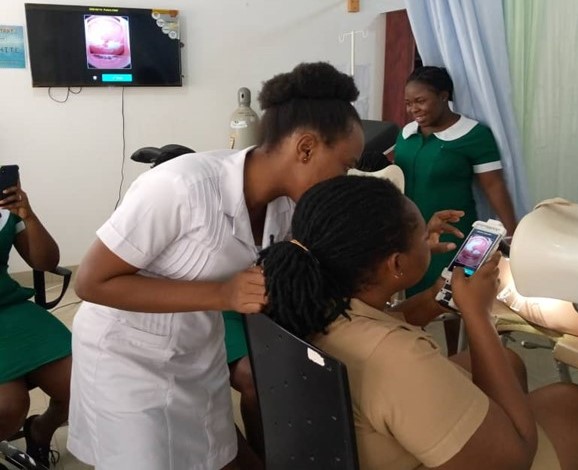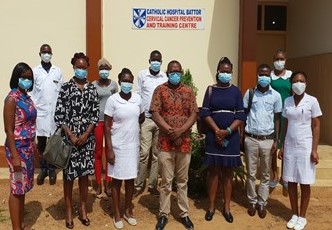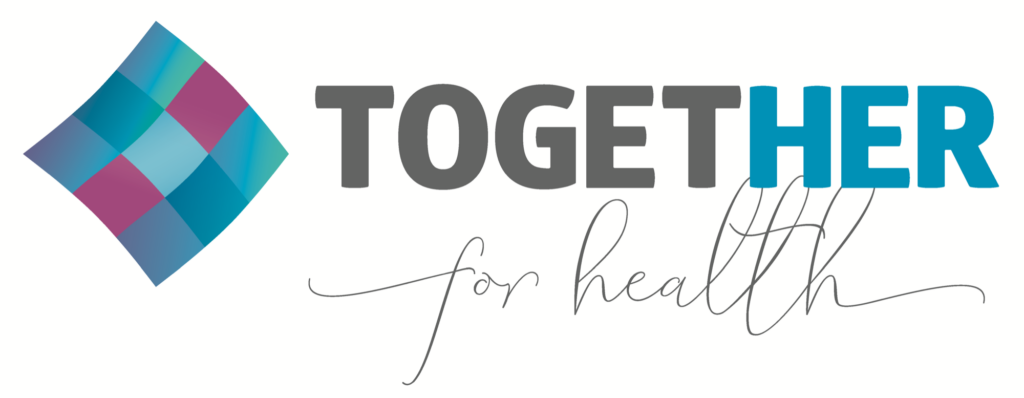The TogetHER Interview: Dr. Kofi Effah, the Cervical Cancer Prevention and Training Centre in Catholic Hospital, Battor, Ghana

October 15, 2020
The impact of COVID-19 on global cervical cancer prevention efforts has been wide-ranging, with unclear long-term ramifications. Our new TogetHER Interview series provides an opportunity for key leaders in global cervical cancer control to discuss current challenges and provide perspective on where the field needs to go from here.
This installment of the TogetHER Interview series features Dr. Kofi Effah, who heads the Cervical Cancer Prevention and Training Centre (CCPTC) in Catholic Hospital in Battor, Ghana.
Header and headshot photo credit: CCPCTC

How have you and your organization been impacted by and adapted to COVID-19?
In 2020, we started strongly with a programme sponsored by the Tema Lions Club and other organisations to train over 180 health workers across Ghana and some other countries in West Africa. Unfortunately, we had to stop in mid-March due to COVID-19. There was no screening program from mid-March to June 2020. There were financial losses. For example, 37 Genexpert HPV cartridges expired on us in April when Accra, the capital city was under lock down. Cervical cancer prevention services came to a standstill at the CCPTC and across the country. In July, 2020, we started offering services gradually. This has picked up and we have numbers close to the pre-COVID-19 times, as we continue to screen women from our gynaecology outpatient department which is very busy. We have not resumed our training programme yet.
What concerns you most about women’s health in low-resource countries during the pandemic? What is your organization doing about it?
Women were unable to reach out to access services. We were also unable to reach out to communities like we did in our usual way. Apart from emergencies, women were not seen for several weeks. We lost a lot of women to follow up. We may see cancers and women presenting in bad conditions in future because of this. Many departments functioned sub optimally. Our Blood Bank, for example, was almost empty because we couldn’t get the usual numbers to donate blood. I personally lost a patient after surgery because we could not get blood for her. We have since intensified education of our clients on the far-reaching effects of COVID-19. Those who need surgery now get more actively involved in blood donation for the Blood Bank.

“. . . we have numbers close to the pre-COVID-19 times, as we continue to screen women from our gynaecology outpatient department which is very busy.”
Photo credit: CCPCTC

How do you see cervical cancer prevention – the HPV vaccine and screen-and-treat –coming back after the pandemic? What can we do now to prepare for the resumption of services?
For the CCPTC, this is tricky because we are expecting trainees from across Ghana and some West African countries. This means we could be a ‘hot spot’ for the COVID-19 infection.
During the pandemic, we still had quality assurance meetings and lectures which were broadcast on zoom and made available to our alumni, which means training continued to some extent during the pandemic. We have started offering vaccination, screening and treatment at the CCPTC but we have not yet resumed training. We have tried to reduce the number of visits to the centre as much as possible. Women are self-sampling and sending samples to us by (public) transport. We have also started sampling more with liquid-based medium (produced in our hospital, which is cheaper) instead of using dry swabs/brushes. The liquid-based medium allows HPV DNA testing and also ‘reflex’ cytology in a low cost way. When the HPV test is positive and we need cytology for follow up per our screening algorithm, we do not have to recall the women for a pap smear to be taken. We call them on phone and they send money to us electronically from wherever they are for this ‘reflex’ cytology. I think this is a great innovation that will continue after COVID-19 together with other technologies we use.

“We have started offering vaccination, screening and treatment at the CCPTC but we have not yet resumed training. We have tried to reduce the number of visits to the centre as much as possible.”
Photo credit: CCPCTC

What is something you have learned during COVID-19 that makes you hopeful?
The possibility to have online training and dissemination of knowledge and information and to share experiences have become more evident. The world was able to put together measures against COVID-19 including rapid COVID-19 tests, some of which give results in less than 30 minutes. If the same effort could be channeled into cervical cancer prevention globally, we could have rapid HPV and molecular tests for cervical cancer screening and other innovations in cervical cancer prevention. If a similar zeal for a vaccine against COVID-19 is channeled to getting therapeutic vaccines for cervical cancer, the world could achieve this and prevent millions of deaths from cervical cancer.
Read more about the CCPTC’s cervical cancer prevention activities in Ghana in a recent TogetHER case study.
Interested in reading more TogetHER Interviews with leaders in the global cervical cancer response? Click here for the full list.

The Cervical Cancer Prevention and Training Centre (CCPTC) in Catholic Hospital, Battor in the North Tongu District of the Volta Region of Ghana was opened on May 31, 2017. The aim was to address the lack of human capacity in cervical cancer prevention in Ghana and beyond by training health workers in cervical cancer prevention skills, while offering cervical cancer prevention services in the hospital (and beyond) to women who need these services. Training began in September 2017 and by March 2020, 120 health workers (general nurses, midwives, community health nurses, medical doctors) in 88 institutions across Ghana had been trained. In addition, two nurses from Liberia and a medical doctor in Sierra Leone have been trained. The philosophy of the centre is to equip trainees with up to date skills to offer services in a sustainable way, reaching out to women in the remotest areas.
